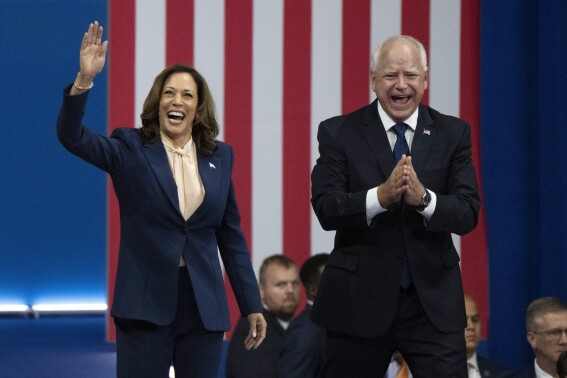Support truly
independent journalism
Support Now
Our mission is to deliver unbiased, fact-based reporting that holds power to account and exposes the truth.
Whether $5 or $50, every contribution counts.
Support us to deliver journalism without an agenda.

Louise Thomas
Editor
Renegotiating Boris Johnson’s Brexit deal could have a “serious positive impact” on turning around Britain’s failing economy, a major think tank has claimed.
The National Institute of Economic and Social Research (NIESR) claimed “Brexit uncertainty”, along with the effects of lockdown and the Covid pandemic, has caused growth and productivity in the UK to lag behind
It added Brexit had contributed to a loss of confidence in Britain as a destination for investment.
It comes as Sir Keir Starmer has already started the process of renegotiating the “flawed” Brexit deal, with his new European affairs minister Nick Thomas-Symonds spearheading the project.
Even though his Brexit renegotiation was welcomed, NIESR questioned the Starmer government’s overall strategy particularly in cancelling infrastructure projects which would have boosted growth.

In its major report on the state of the economic inheritance for the new Labour government and continued economic gaps between regions in the UK, NIESR also questioned whether chancellor Rachel Reeves will meet her growth targets.
It noted productivity in the UK is barely growing overall, while “things like Brexit uncertainty” have contributed to it actually declining in regions like the Midlands and the South East.
It further pointed out that since leaving the EU, confidence in the UK has also declined because of a questionable record in delivering major infrastructure projects such as High Speed 2, where large sections of the project were cancelled by Rishi Sunak’s government.
Stephen Millard, deputy director for macroeconomic modelling and forecasting at NIESR, suggested Labour’s plans to renegotiate the Brexit deal struck by Mr Johnson could help turn things around.
Responding to a question from The Independent, he said: “If the renegotiation goes in the direction of making it easier to trade compared to where we are now, if the renegotiation manages to achieve that then that will be a positive for sure.

“By opening up trade more that does lead to productivity growth, it also again if we are trading more with the EU it makes us a better more attractive place for direct foreign investment, it makes the UK a more attractive place for business globally because we have those opportunities to trade.
“That has been the really bad thing about Brexit, is that it has reduced the opportunities of businesses to grow by trade and be more productive.
“So if there is one thing the government could do that would have a serious impact on growth then trying to bring us closer to Europe would be a definite winner in my view.”
However, Mr Millard said he was “concerned” by the early signs of Ms Reeves in the Treasury after her first statement last week on the £22 billion black hole in public finances saw her cancel rail projects and a new hospital building program.
Instead, NIESR said public investment into building infrastructure needed to double from 2.5 per cent of GDP to 5 per cent - around £50 billion a year.
It warned this would mean Ms Reeves will need to rethink her fiscal rules and discount public investment from debt calculations because “returns on capital projects take more than five years”.
It also suggested that instead of looking at capital gains tax, Ms Reeves should be taxing income or targeting estates with a new Land Value Tax to make up the shortfall.
Mr Millard said, however, this would require "either higher taxes or higher borrowing or both".
Last week, Ms Reeves indicated that taxes are likely to be raised in the autumn Budget after she criticised the state of public finances left by the previous government.
Ms Reeves said Labour would stick to its election manifesto promises not to raise national insurance, income tax or VAT, but left open the possibility for other tax hikes at the Budget on October 30.
However, NIESR stressed the importance of public investment in areas such as transport connectivity in order to help drive economic growth.
The think tank said the new government will need to address "low-trend productivity growth, make changes to the current fiscal framework and improve declining living standards".
Mr Millard said: "The new government has inherited an economy with low investment and low productivity growth, and it is these issues that need to be tackled.
"In addition, public spending needs to rise if public services are to be brought up to scratch, the nations and regions of the United Kingdom outside London and the South East are to see the regeneration they need, and the government is to meet the mandated target of achieving net zero by 2050."
NIESR's latest outlook report predicted that output will grow by around 1.2 per cent per year over the life of the current parliament, while unemployment is likely to remain around 4.5 per cent.
It also predicted that inflation will tick higher again over the second half of 2024 and the start of 2025, but will return to around the 2 per cent target rate in the medium term.
Adrian Pabst, deputy director for public policy at NIESR, said: "The government's mission-driven approach and the creation of an Industrial Strategy Council have the potential to overcome barriers to better economic policy-making such as policy and ministerial churn, departmental silos and a lack of coordination across Whitehall.
"While these are necessary and welcome steps, they are not sufficient to reduce regional and local inequalities substantially.
"The government needs an overarching strategy to rebuild state capacity, not tinkering at the edges."
Disclaimer: The copyright of this article belongs to the original author. Reposting this article is solely for the purpose of information dissemination and does not constitute any investment advice. If there is any infringement, please contact us immediately. We will make corrections or deletions as necessary. Thank you.



